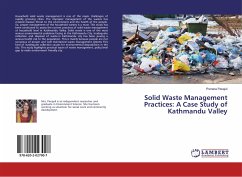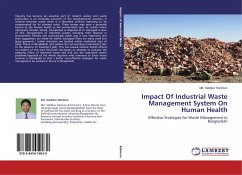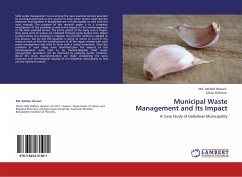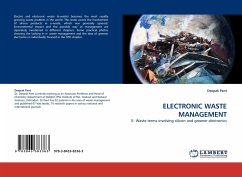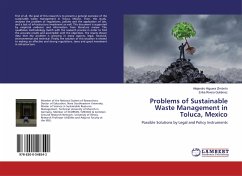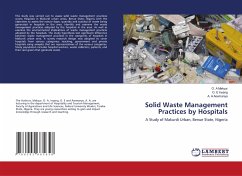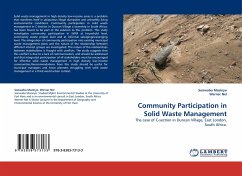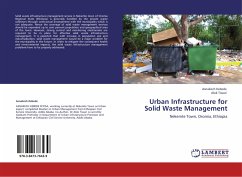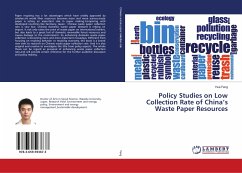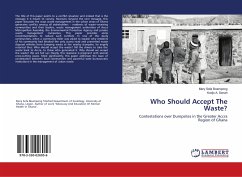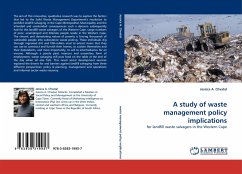
A study of waste management policy implications
for landfill waste salvagers in the Western Cape
Versandkostenfrei!
Versandfertig in 6-10 Tagen
39,99 €
inkl. MwSt.

PAYBACK Punkte
20 °P sammeln!
The aim of this innovative, qualitative research was to explore the factors that led to the Solid Waste Management Department's resolution to prohibit landfill salvaging in the Cape Metropolitan Municipality and the intended and unintended consequences such a decision subsequently had for the landfill waste salvagers of the Western Cape. Large numbers of poor, unemployed and illiterate people reside in the Western Cape. The chronic and devastating nature of poverty is forcing thousands of vulnerable people into subsistence waste picking. These individuals dig through ingrained dirt and filth-r...
The aim of this innovative, qualitative research was to explore the factors that led to the Solid Waste Management Department's resolution to prohibit landfill salvaging in the Cape Metropolitan Municipality and the intended and unintended consequences such a decision subsequently had for the landfill waste salvagers of the Western Cape. Large numbers of poor, unemployed and illiterate people reside in the Western Cape. The chronic and devastating nature of poverty is forcing thousands of vulnerable people into subsistence waste picking. These individuals dig through ingrained dirt and filth-ridden mud to extract items that they can use to construct and furnish their homes, to sustain themselves and their dependents, and more importantly, to sell to intermediaries for an income. Although a poorly paid, insecure and unsanitary form of employment, waste salvaging still puts food on the table at the end of the day when all else fails. This novel social development exercise explored the drivers for and barriers against landfill salvaging from three different perspectives: policy & planning, management and operations and informal sector waste recovery.



